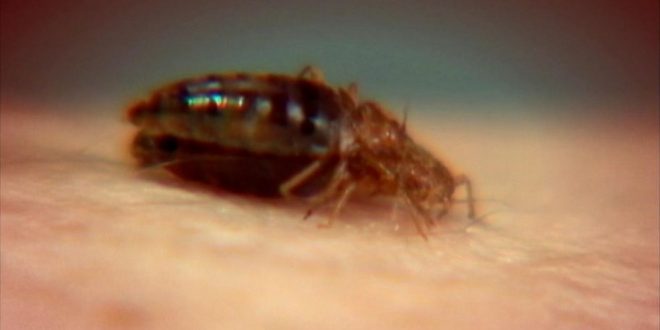Bed bugs are developing a resistance to common insecticides and it’s making them much harder to kill, a new study says.
According to scientists at Purdue University, bed bugs have already shown resistance to several other insecticides, including the commonly-used deltamethrin. However, bifenthrin and chlorfenapyr can now be added onto that growing list.
In a study to be published next week in the Entomological Society of America’s Journal of Economic Entomology, researchers at Purdue University found significantly reduced susceptibility to chlorfenapyr among three out of 10 bed bug populations collected in the field, and they found reduced susceptibility to bifenthrin among five of the populations.
The common bed bug (Cimex lectularius) already shows significant resistance to deltamethrin and some other pyrethroid-class insecticides, which is viewed as a main cause of its resurgence as an urban pest. In fact, 68 percent of pest management professionals identify bed bugs as the most difficult pest to control, according to a 2015 Bugs Without Borders survey of pest management professionals conducted by the National Pest Management Association and the University of Kentucky. Little research had yet been done, however, to examine potential resistance to bifenthrin (also a pyrethroid) or chlorfenapyr, a pyrrole-class insecticide, which led the Purdue researchers to investigate.
“In the past, bed bugs have repeatedly shown the ability to develop resistance to products overly relied upon for their control. The findings of the current study also show similar trends in regard to chlorfenapyr and bifenthrin resistance development in bed bugs,” says Ameya D. Gondhalekar, Ph.D., research assistant professor at Purdue’s Center for Urban and Industrial Pest Management. “With these findings in mind and from an insecticide resistance management perspective, both bifenthrin and chlorfenapyr should be integrated with other methods used for bed bug elimination in order to preserve their efficacy in the long term.”
They tested 10 populations of bed bugs that were collected and contributed by pest management professionals and university researchers in Indiana, New Jersey, Ohio, Tennessee, Virginia, and Washington, DC, measuring the percent of bed bugs killed within seven days of exposure to the insecticides. Generally, populations in which more than 25 percent of the beg bugs survived were deemed to have reduced susceptibility to the insecticide based on statistical analysis performed in comparison to the susceptible laboratory population.
Interestingly, the researchers found a correlation between chlorfenapyr and bifenthrin susceptibility among the bed bug populations, which was unexpected because the two insecticides work in different ways. Gondhalekar says further research is needed to understand why the bed bugs that are less susceptible can withstand exposure to these insecticides, especially chlorfenapyr. In any case, adherence to integrated pest management practices will slow the further development of resistance.
“There is a plethora of research that has shown that if insecticides are integrated with additional control measures such as vacuuming, steam or heat, mattress encasements, traps, and desiccant dusts, effective bed bug control can be accomplished and theoretically this should reduce the risk of resistance build-up in populations,” Gondhalekar says.
Agencies/Canadajournal
 Canada Journal – News of the World Articles and videos to bring you the biggest Canadian news stories from across the country every day
Canada Journal – News of the World Articles and videos to bring you the biggest Canadian news stories from across the country every day



